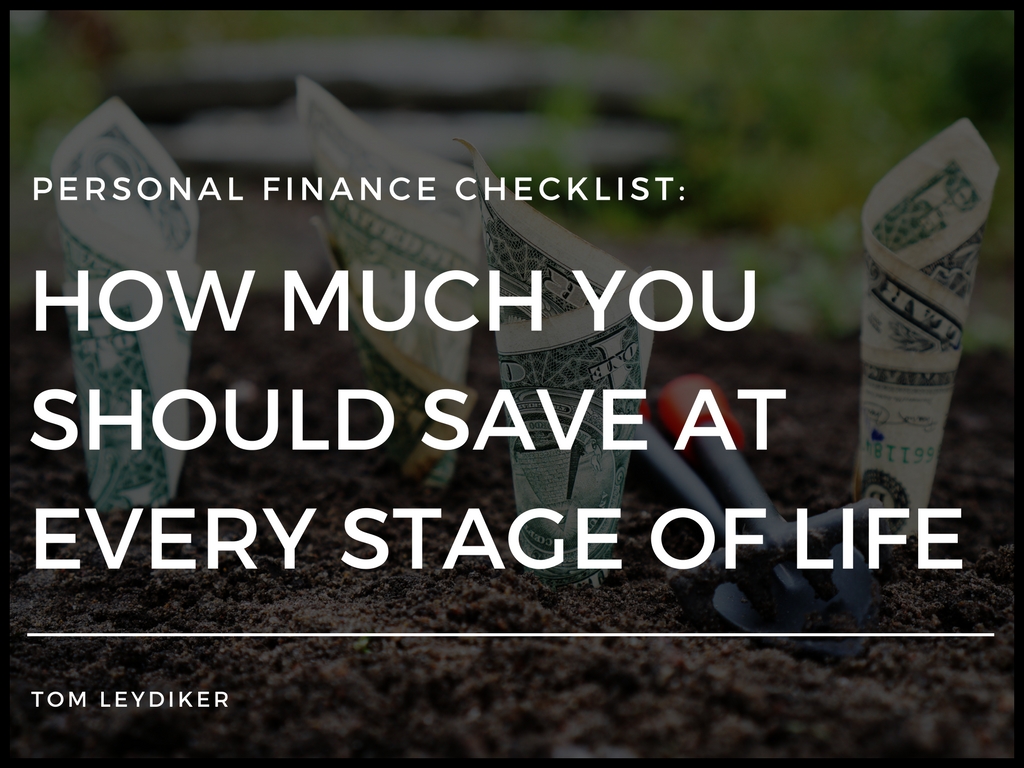
The best way to build your personal wealth is to save your money as early and as often as you can. Having an account with compound interest will allow your money to begin making you more money. The bestselling author David Bach lays out a saving plan for each stage of your life in his book “The Automatic Millionaire.” The exact amount that is saved will differ from person to person depending on lifestyles and personal goals, however, Bach’s plan is a good rule of thumb to refer to.
The first decade you should start seriously saving is in your twenties. In your twenties you should be saving 10% of your gross income to your retirement savings and your emergency savings should be at least three months of expenses. If your company offers a 401 K plan and matches your contributions up to a certain percent, often somewhere between 3-5%, saving that 10% of your gross income just became much easier.
In your thirties, it can be expected that you’re not only providing for yourself anymore. You may have gotten married, may have had children, or may have bought a house. This is where you thank yourself for beginning to save at an earlier age. At this stage of life, 12.5% of your gross income should be saved for retirement and your emergency savings should cover your expenses for at least six months.
Your forties will be your peak earning years. This stage of life is going to be the most profitable time to take advantage of your increasing salary and save as much as you can. You should be saving 15-20% of your gross income to your retirement fund, and your emergency savings should be able to cover you for at least year or two of expenses. If you set yourself up with an account early on, you’ll truly start to notice your compound interest making money for you.
Once you’re in your fifties, you should be getting close to your retirement goal. Don’t stop saving once you reach this goal. You should be saving up until the day of your retirement. By this time, your emergency savings should be able to cover at least three years worth of expenses. It’s important to have this much in emergency savings because “the older you get the more you earn and spend. And if you lose your job it can take longer to find a job that replaces that income” explains Bach.
During your sixties and into retirement, you should still manage your money carefully. If you’ve followed the plan outlined above, you should be set to enjoy your money. Your emergency savings account should contain roughly five years of expenses.

